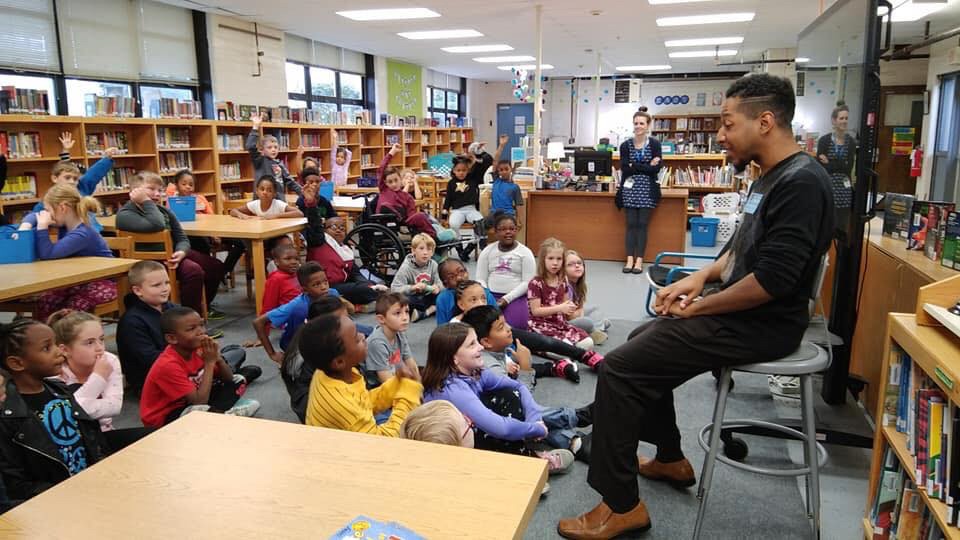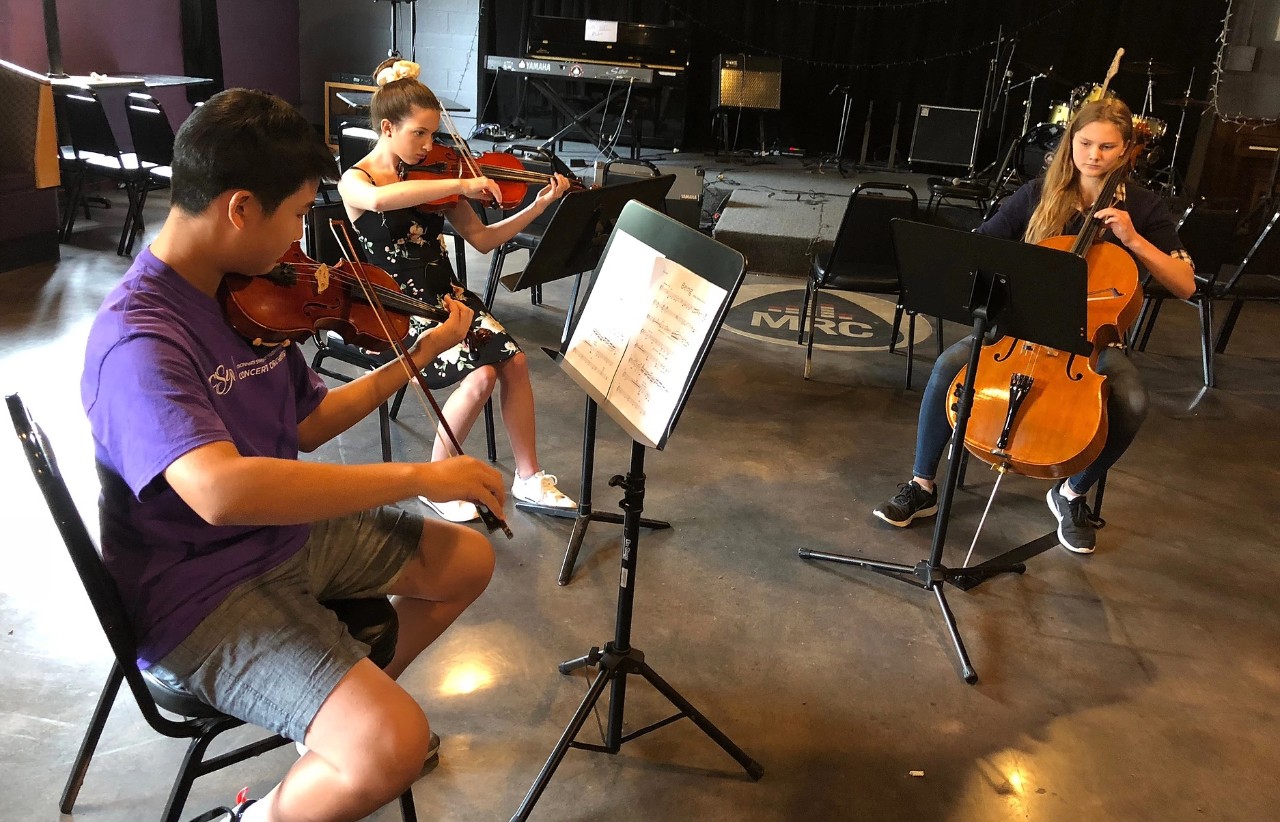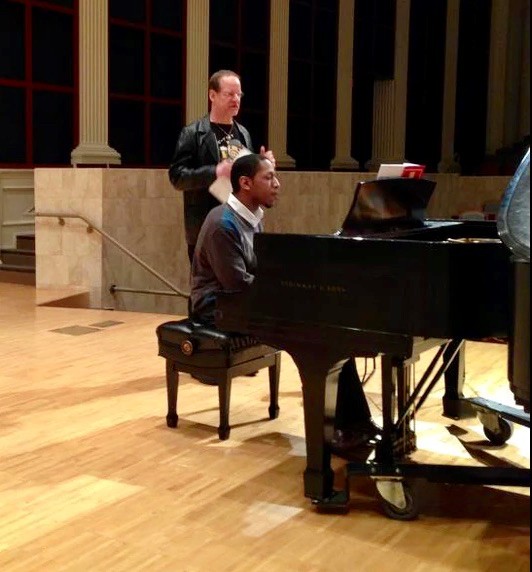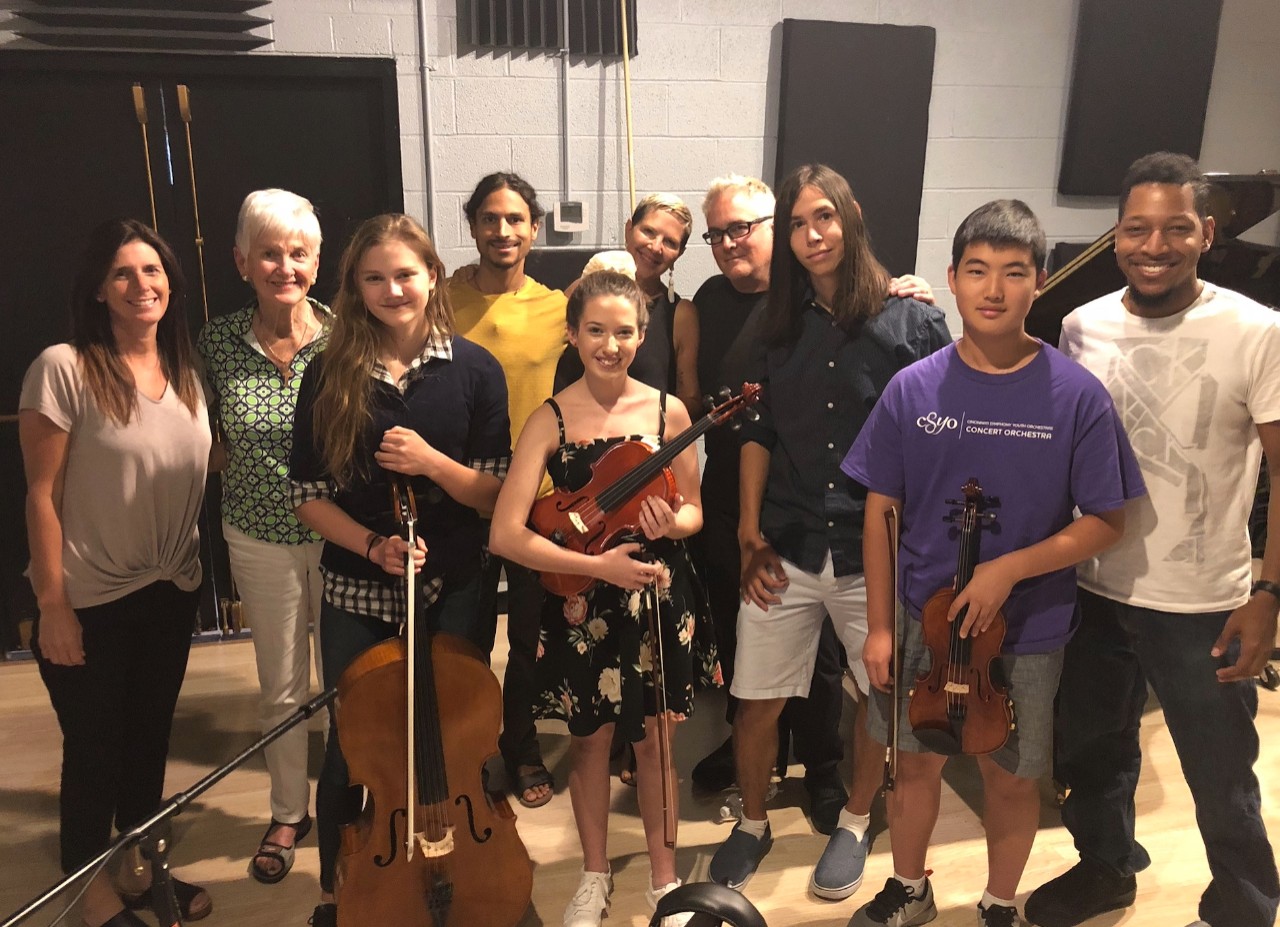CCM composer bridges cultural gaps through music
UC grad earns Fulbright Fellowship and travels to Australia where he will build on his passion to bring people together through musical diversity

Brian Raphael Nabors
Blending the unique sounds of orchestral instruments into melodies that bring people together is more than a goal for one University of Cincinnati College-Conservatory of Music (CCM) grad. For Brian Nabors, composing orchestral works that help bridge cultural gaps between all sorts of listeners has been a lifelong passion.
With a brand new UC CCM Doctor of Music degree in one hand and a Fulbright Music Fellowship in the other, Nabors will spend the first 10 months of 2020 at the Sydney Conservatorium of Music at the University of Sydney in Australia, studying and composing with internationally renowned composer Carl Vine.
“Carl Vine has a unique and tasteful musical approach very similar to my own, so the opportunity to study with him is a dream come true,” says Nabors. “This opportunity will enable me to continue being an ambassador not only for the arts but for my country and my culture.”
Through UC’s Office of Nationally Competitive Awards, Nabors secured a Fulbright-mtvU Fellowship, which Fulbright describes as a special opportunity for U.S. students to pursue projects around an aspect of international contemporary or popular music as a “cultural force for expression.”
In addition to Nabors, UC received five Fulbright Student Scholarships for 2019-20. Through UC's Office of Nationally Competitive Awards, four recipients include Amanda Bright, who will teach English in Greece; Garrett Ainsworth, who will teach English in Taiwan; Andrea Ori, who will work in biophysics at the Louis Pasteur Institute in Paris; and Chloe Elleman, who received a UK summer institute grant from Ireland.

Artist-in-Residence Brian Nabors directs students as part of the Mindful Music Moments and the Cincinnati Symphony Educator Network for their Sempre Sano residency at the Music Resource Center of Cincinnati.
Venturing out of the country for the first time, Nabors looks forward to shadowing composer Vine, teaching in a local music organization in Sydney and experiencing music through new perspectives.
While studying the more technical aspects of orchestration, Nabors hopes to develop musical business skills with Vine, who also directs the Musica Viva Australia organization, one of the largest presenters of chamber music in the world.
“Through these valuable experiences, I hope to curate concerts of my own in a way that brings underrepresented people and communities together, especially for those who may not know much about classical music,” says Nabors. “Together, we can all begin attending, creating and loving new music.”
Nabors’ positive impact on the community, creative innovation and academic success are excellent examples of the three primary platforms of UC’s strategic direction called Next Lives Here, which stresses the importance of urban impact, UC's innovation agenda and academic excellence.

Brian Raphael Nabors
“I’m working to create a more polystylistic musical environment instead of having the genres so separated,” he says. “I find that the orchestra is an analogy of how much we can achieve as one body when we understand just how special our unique differences are.”
Each section of instruments contributes something of value to the overall musical experience, much like cultural diversity makes our lives better, he says.
“My strong will to motivate came out of a somewhat sheltered life of being different. I grew up the son of an African American middle-class pastor and nurse/church musician who poured love and the beauty of compassion into my spirit,” explains Nabors. “My mother was a church organist for years and was quite fond of the arts. She would expose me to many forms of artistic expression, not all of which were acceptable in the eyes of my peers.”
First love

Nabors devotes a great deal of time to the Cincinnati Public Schools inspiring young students to the beauty of classical and all forms of music.
Nabors’ early love for show tunes, dancing and animated gestures didn’t exactly conform to the images his classmates were being conditioned to emulate at the time. But through perseverance and strong support from his family, Nabors went on to achieve success through piano, Hammond organ and musical composition in a variety of genres such as classical, jazz, gospel, rhythm and blues, country, soul and contemporary classical.
Through a contemporary classical style, Nabors integrates many musical genres into his compositions. “There is something for everybody,” he says.

Young musicians of the Cincinnati Symphony Youth Orchestra and Indian Hills Middle School rehearsing "Being" by Brian Nabors.
"Like many of my other colleagues in the field of classical music, I often wonder, 'Where is this machine heading?' Nabors asks. "Will society think of this art form as relevant 20 to 50 years down the line? How do we make classical music accessible and relevant to people from all backgrounds so that it truly inspires the people who live and work in our communities?
“What should we be doing as artists to preserve the art form and promote its importance for future generations?”
Nabors believes it’s about going back into our communities and re-examining the many benefits of this music. He says studies have shown that classical music and the arts train the mind to focus, making people better equipped to tackle other worldly tasks.
"My experience as a black American citizen, as well as a living composer has spearheaded my mission to showcase the beauty of this music to underexposed communities, focusing particularly on the youth of our current generation," adds Nabors. "By introducing them to the art form now, it allows them the opportunity to develop a long-lasting relationship with this music.
"In terms of communities of color, this means diversification of concert-going audiences, a greater demand for classical music and marketability that transcends barriers of color and class."

Nabors worked closely with composer Lowell Liberman during his Lowell Liberman residency at the Samford University School of Arts.
“Brian Nabors is a most deserving recipient of the Fulbright Fellowship,” says Douglas Knehans, UC CCM professor of musical composition. “His work spans chamber, vocal and orchestral music.
"He has already worked with major U.S. orchestras such our own Cincinnati Symphony Orchestra, the Detroit Symphony Orchestra and the Atlanta Symphony Orchestra,” where, under the direction of conductor Robert Shaw in 1968, Thomas Jefferson “T.J.” Anderson became the first African American composer in residence, ultimately paving the way for African American composers throughout the country.
“His star is on the rise for an excellent reason,” adds Knehans. “Nabors’ works are meticulously well crafted and offer huge expressive scope from the dramatic to the intimate. He brings total professionalism to not only his work but to musicians and others through his personal demeanor.”
Music removes the illusion that we are somewhat too different to find commonalities. Music inspires us to think higher, reach further and dream bigger, leading us to incredible advancements that change the face of mankind.
Brian Raphael Nabors UC CCM Doctor of Music graduate and 2019 Fulbright recipient
Harmonious persuasion

During his 10 months in Sydney, Nabors will compose his "Concerto for Orchestra" in four parts. Here he is reviewing his 2018 "Concerto for Hammond Organ: Commentary on Modern-day America Through the Eyes of the Past."
While at the University of Sydney under Vine’s guidance, Nabors will begin creating the four movements of his “Concerto for Orchestra.”
“Each movement is to highlight a significant cultural subject relating to American lifestyle in some form or another,” says Nabors. “One movement example would be a musical depiction of the false sense of reality concerning the glamour of Hollywood in the United States."
Nabors says another movement would portray the sense of urgency we should have concerning our country’s role in the conservation of the environment and global warming.
Robust and delicate musical tones, created to depict intense weather systems, pollution and ecosystems in great risk of extermination, will all find their way into the concerto, Nabors says.
“The musical pitch, tone, quality and timbre will also include distinct characteristics geared toward biases of race, gender, religion and the egregious effects that many other forms of bigotry have on American life,” he adds.

Music Resource Center Cincinnati staff and students, Sempre Sano Residency partners, Stacy Sims (Mindful Music Moments), Cincinnati Symphony Youth Orchestra musicians and composer Brian Nabors on far right.
It was in early 2018, while working as Artist-in-Residence with the Cincinnati Symphony and its Mindful Music Moments program, when Nabors’ passion for touching the heart and soul of Americans from all cultures really began to blossom.
“I had finished a studio recording of a musical piece for piano and Tibetan singing bowls with a class of teenagers when a dedicated and passionate young rap artist approached me,” claims Nabors. “He said, ‘Man, I love that pioneering mindset you have.’”
After an enthusiastic conversation about how various musical instruments can produce a variety of musical contexts, Nabors realized exactly why he has dedicated his life to music.
“Music removes the illusion that we are somewhat too different to find commonalities,” Nabors says. “Music inspires us to think higher, reach further and dream bigger, leading us to incredible advancements that change the face of mankind.
“It is within this fact that my main goal as an artist is not merely to entertain, not simply to soothe the soul, but ultimately, beyond all else, to inspire.”
More about:
- UC Office of Nationally Competitive Awards
- Fulbright Music (mtvU) Fellowship awards
- Brian Raphael Nabors
- Musica Viva Australia
- Dreamscapes for Orchestra (2014) Harp, Piano, Strings (audio excerpts)
Featured image at top: Portait of Brian Raphael Nabors. All photos provided by Brian Nabors
Want to march to your own music?
Become a UC CCM music composition success. Apply as an undergrad or graduate Bearcat and create inspirational change through music.
Related Stories
It’s a mindset: Meet the visionaries redefining innovation at...
December 20, 2024
Innovation is being redefined by enterprising individuals at UC’s 1819 Innovation Hub. Meet the forward thinkers crafting the future of innovation from the heart of Cincinnati.
UC students well represented in this year’s Inno Under 25 class
December 20, 2024
Entrepreneurialism runs through the veins of University of Cincinnati students, as confirmed by the school’s strong representation in this year’s Inno Under 25 class.
UC professor Ephraim Gutmark elected to National Academy of...
December 20, 2024
Ephraim Gutmark, distinguished professor of aerospace engineering at the University of Cincinnati, was elected to the 2024 class of the prestigious National Academy of Inventors.

